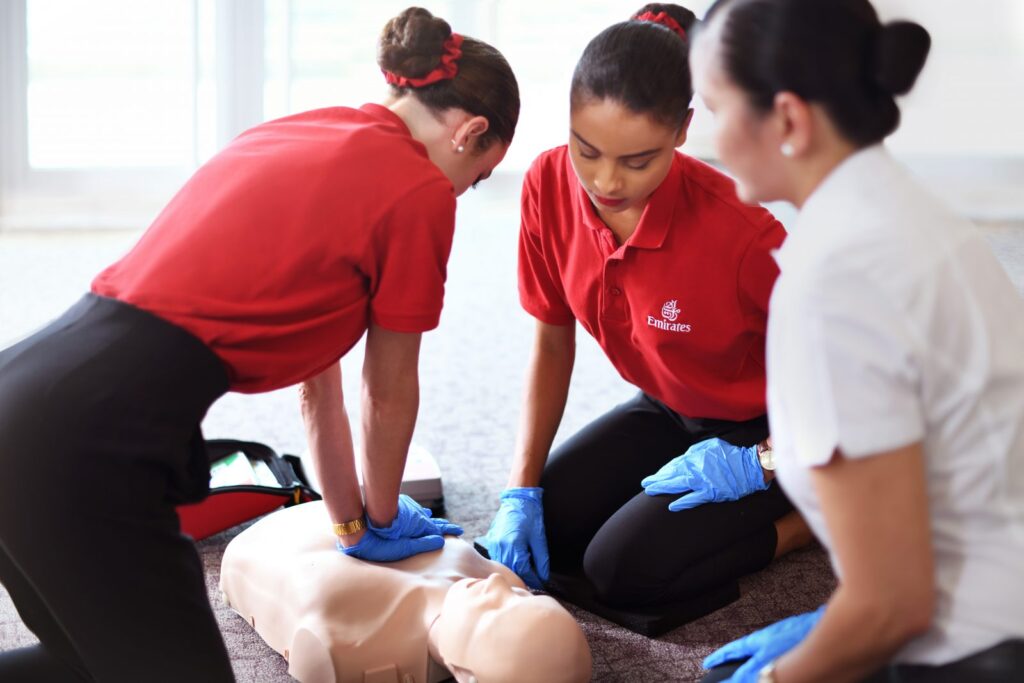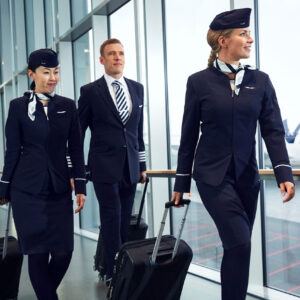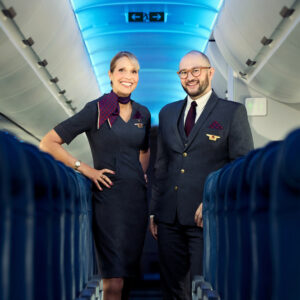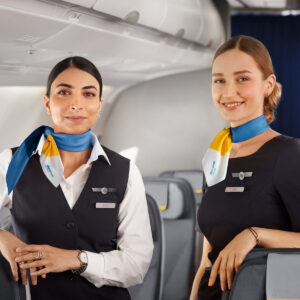“Are cabin crew first aid trained?” This question often surfaces in the minds of air travellers. Absolutely, the response is a clear yes. The aviation sector gives great importance to keeping passengers safe, and this involves getting ready for any medical emergencies.
The Importance of First Aid Training
Cabin crew members are not just hospitality professionals; they are also trained first responders. Their training encompasses advanced first aid and aviation medicine, equipping them to tackle a spectrum of medical emergencies mid-flight. They have honed their abilities to conduct cardiopulmonary resuscitation (CPR) and manage a defibrillator adeptly. Also, they know a lot about how flying can affect people’s health.
Prepared for Any Eventuality
Prior to every flight, the cabin crew participates in a briefing session. During this session, their understanding of safety, emergency protocols, and medical situations is renewed, equipping them to handle any circumstance effectively. The training encompasses a broad range of scenarios, encompassing but not restricted to instances like choking, asthma, diabetes, stroke, seizures, and even childbirth, ensuring comprehensive preparedness.
Challenges and Adaptations
The role of cabin crew during a medical emergency is pivotal, given the unique and confined environment of an aircraft cabin. Their first aid training is tailored to these circumstances, including modifications to standard CPR techniques. Their primary objective is to preserve life, prevent the condition from escalating, and promote recovery, all while maintaining a composed and professional demeanour.
The Power of Protocols: DRSABCD and SAMPLE
When a medical emergency arises, the first crew member on the scene takes on the role of an assessor. They quickly evaluate the situation and determine the appropriate response. They rely on the DRSABCD protocol to guide their initial response, which stands for Danger, Response, Send for help, Airway, Breathing, CPR, and Defibrillation.
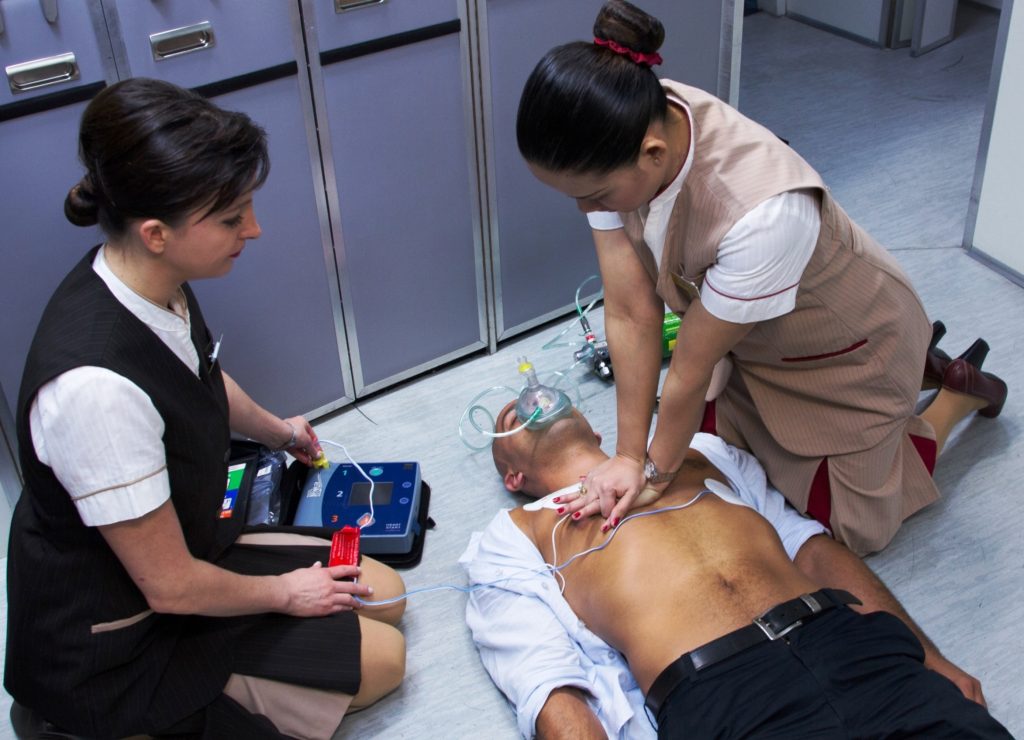
The crew also utilises the SAMPLE protocol to gather crucial information about the patient’s condition. SAMPLE stands for Symptoms, Allergies, Medications, Past medical history, Last meal, and Events leading up to the present illness or injury. These globally recognised acronyms ensure a systematic and comprehensive approach to emergency situations.
Ground Support: The MedLink Facility
Certain aircraft are equipped with a ‘MedLink’ facility, enabling the flight crew to connect with a medical professional on the ground. This service can provide advice and help ascertain whether the incident is life-threatening and if the aircraft needs to divert to the nearest airport with medical facilities.
In Conclusion
To wrap up, the question “Are cabin crew first aid trained?” is met with a definitive yes. Cabin crew members are not just regular flight attendants. They are like special helpers who are trained to be the first to help in different medical emergencies. They know more than just the usual steps like DRSABCD and SAMPLE. They learn many things like how to do CPR, use a defibrillator, and know about health problems that can happen during flights. Therefore, as you step onto your next flight, take comfort in the knowledge that a team of highly trained professionals is on board to safeguard your well-being. Their mission extends beyond providing comfort during your journey; they are also dedicated to ensuring your safety.
Frequently Asked Questions (FAQ)
Are flight attendants trained to do CPR?
Yes, flight attendants are trained to perform cardiopulmonary resuscitation (CPR). This is a crucial part of their first aid training, preparing them to respond effectively to cardiac emergencies during a flight.
What is the first aid for cabin crew?
First aid for cabin crew involves a comprehensive training programme that equips them to handle a variety of medical emergencies. This involves doing CPR, operating a defibrillator, handling situations where someone is choking, taking care of burns, and addressing other health problems such as asthma, diabetes, and seizures. They are also trained to use the DRSABCD and SAMPLE protocols to assess and respond to emergencies.
Is flight attendant a first responder?
Yes, in the context of in-flight emergencies, flight attendants act as first responders. They are trained to assess the situation, provide first aid, and coordinate with ground-based medical professionals if necessary. What they do is really important because they make sure passengers are safe and okay until the airplane can land and more medical assistance can come if needed.
What are cabin crew trained in?
Cabin crew members learn many different things to make sure passengers are safe and comfortable. They know how to help in medical emergencies, fight fires, handle emergencies when landing, and assist passengers. They also learn special steps like DRSABCD and SAMPLE to handle medical problems well. They also understand how flying can affect the body and know about staying healthy while traveling.


